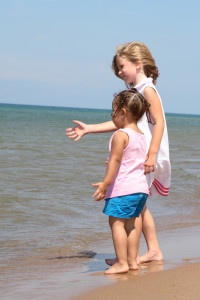We have much more to do and your continued support is needed now more than ever.
Healing Our Waters Program moves Great Lakes Restoration Forward

That’s where the Healing Our Waters – Great Lakes Coalition (HOW) steps in. Co-chaired by NWF, HOW has a small grant program that awards organizations grants to jump-start their projects in order to prepare for a larger proposal under the GLRI. These grants give groups the resources they need to do research and establish partnerships that are necessary to build robust grant proposals. The grant program began in 2010, and it’s already producing dramatic results: fifteen awards of $15,000 or less went out to groups who were then able to apply for 12 GLRI grants, and of these, 6 were awarded – resulting in almost $1.7 million in GLRI grants. Adding to their successes, these groups also received over $4 million in other funding – meaning that those original 15 grants led to nearly $6 million towards much-needed projects. That’s a lot of restoration for the Great Lakes!
Those are pretty big numbers, but what does this mean, in the grand scheme of things? To name just a few, it means that the Western Lake Erie Waterkeeper Association can continue their work to set up an invasive species early detection system for Western Lake Erie, and the St. Louis River Alliance is able to restore habitat for endangered piping plovers. It means that the Alliance for the Great Lakes can build a program that allows landowners to prioritize and protect glacial ravines around Lake Michigan. Projects like these are critical to restoring the Great Lakes, and collectively they will make a significant improvement in the state of the Great Lakes.
What can you do to help the Great Lakes?
The GLRI is a sound investment in the Great Lakes that’s producing results, but it’s a federal program and therefore dependent on congressional funding. Let your Member of Congress know that restoration projects are necessary for the future of the Great Lakes and important to the people whose lives depend on them. Tell them to support the GLRI and continue to deliver needed economic and environmental benefits to the Great Lakes region.
Support NWF’s efforts to keep Asian Carp out of the Great Lakes





















